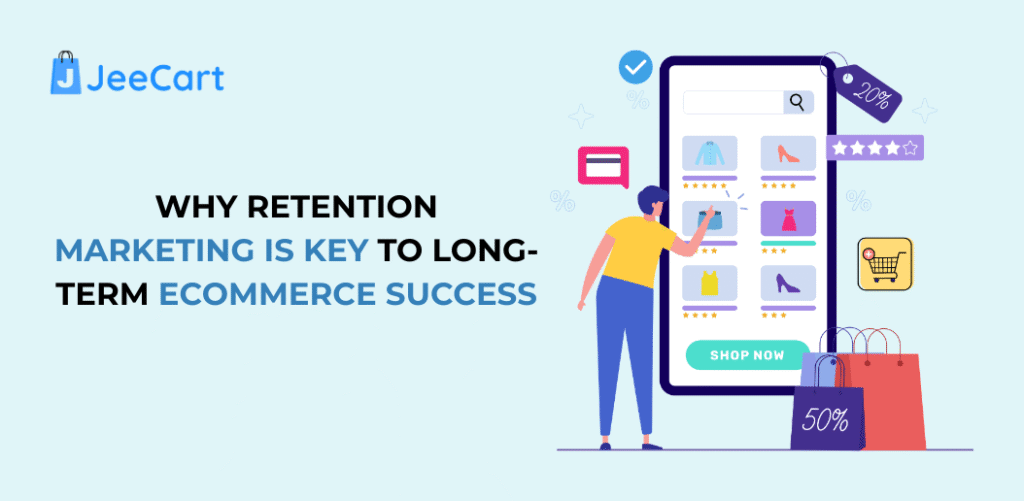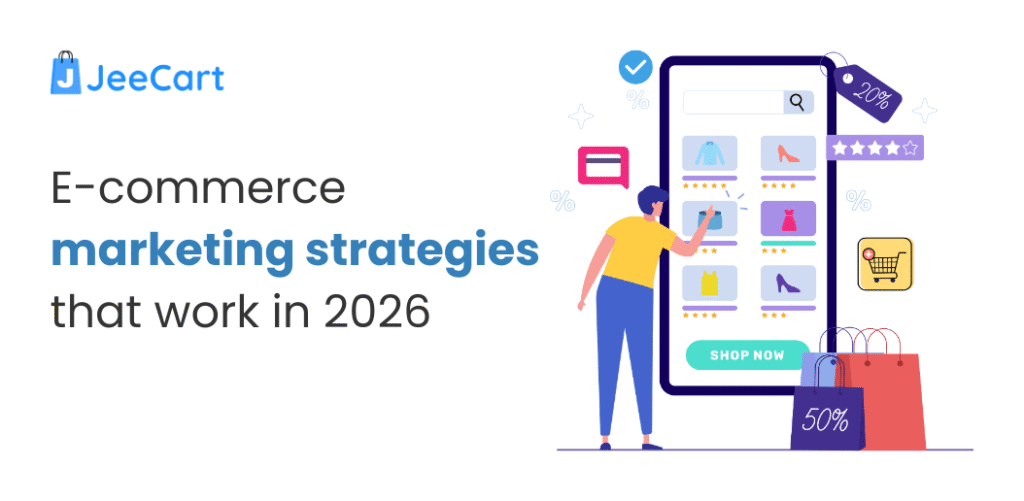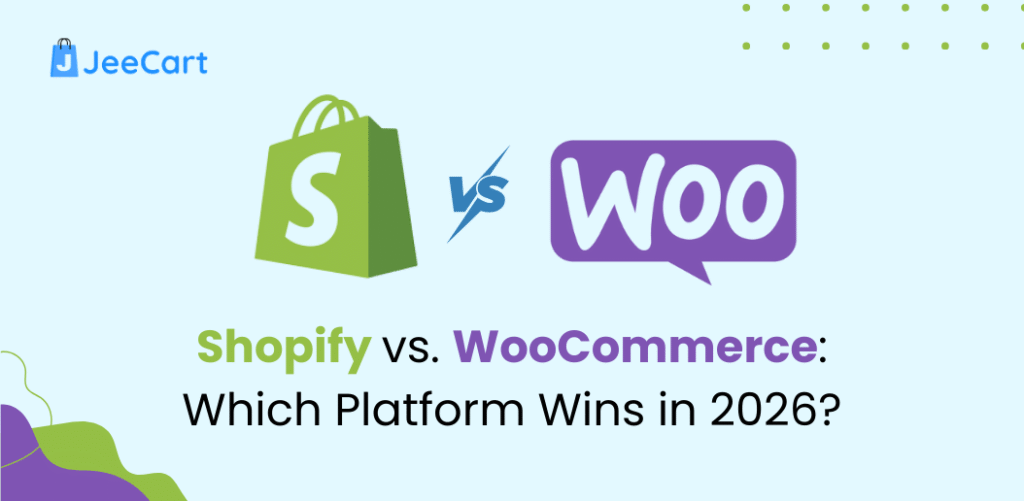Open source Ecommerce resembles constructing your ideal online shop from scratch, equipped with all the awesome, customizable tools you require!
Imagine a shop that is fully yours – no limits, no concealed charges, just limitless opportunities.
You receive access to the code (absolutely, you can adjust it!) and customize your site precisely how you’d like it
Additionally, you’re not by yourself – a whole community is here to assist you in enhancing your skills.
The open-source eCommerce market is booming, with a 16.3% CAGR projected from 2023 to 2030, as businesses flock to its flexibility and cost-saving benefits.
In this blog, we’ll dive deep into what makes open-source ecommerce platforms a game-changer.
How does Open-Source Ecommerce works?
-
Choose an Open-Source Platform:
Pick free Ecommerce software, like WooCommerce, Magento, or PrestaShop.
-
Download and Install:
Download the platform from the official website and install it on your server or hosting service.
-
Set Up Your Store:
Create your online store by adding product categories, descriptions, prices, and images.
-
Customize Your Design:
Use themes or templates to design your store to match your brand. You can also hire a developer to make custom changes.
-
Add Payment Methods:
Set up payment gateways like PayPal, Stripe, or credit card options to accept payments.
-
Set Shipping Options:
Choose shipping methods (local, international) and set up shipping costs.
-
Manage Orders:
Once your store is live, you’ll get orders that you can manage from the admin dashboard.
-
Maintain and Update:
Regularly update the platform, add new features, and fix bugs to keep your store running smoothly.
-
Community Support:
Since it’s open-source, there are forums and communities where you can ask questions and get help.
-
No Monthly Fees:
You don’t have to pay a subscription, but you’ll need to pay for a hosting domain, and any extra plugins or custom work.
That’s the basic flow of how open-source Ecommerce works! It’s flexible and customizable but requires a bit of setup.
7 Best Open Source ecommerce Tools
Thinking about launching your Ecommerce journey? If keeping costs low and staying flexible is your goal, open-source Ecommerce platforms could be your secret weapon. These solutions hand you the reins, letting you shape your store exactly how you envision it.
Curious to know more?
Let’s dive into 7 top-tier open-source Ecommerce tools. We’ll explore their key features, how they’re used, and the big-name brands leveraging their power.
1. WooCommerce

Features:
WooCommerce is a WordPress plugin that simplifies turning a WordPress site into a complete online shop. It’s easy to use and provides a diverse array of themes and extensions to help personalize your store. Main characteristics encompass multiple payment gateway support, various shipping options, tax computation, and product variations.
Use Cases:
WooCommerce is ideal for small to medium enterprises aiming to start an online shop with low initial costs. It is particularly advantageous for companies that are already utilizing WordPress, as it fits effortlessly into their current website without the need for an additional platform.
Famous Brands:
- All Blacks Shop (Official merchandise of New Zealand’s rugby team)
- Blue Star Coffee (Coffee company selling beans and accessories)
2. Magento (Adobe Commerce)

Features:
Magento is a robust Ecommerce platform that provides a variety of features designed for large businesses. It offers a scalable approach with strong tools for managing products, segmenting customers, and enhancing SEO. Magento additionally accommodates various languages, currencies, and provides adjustable features, making it perfect for global Ecommerce sites.
Use Cases:
Magento is built for large enterprises requiring a versatile and expandable Ecommerce platform. Its comprehensive capabilities aid in product management, focused customer approaches, and optimized SEO to elevate the online shopping experience.
Famous Brands:
- Nike
- Coca-Cola
- Ford
3. PrestaShop

Features:
PrestaShop offers a complete Ecommerce solution with over 600 features ready for use right away. You acquire skills in product management, customer management, SEO optimization, and the ability to manage different languages and currencies. The extensive marketplace for add-ons allows you to enhance its capabilities further.
Use Cases:
PrestaShop is ideal for businesses of any size looking for a customizable and feature rich Ecommerce platform. It is particularly beneficial for those looking for a combination of ease of use and advanced features.
Famous Brands:
- C&A
- Cocooncenter
- PokerStars
4. Shopify (Open Source Version)

Features:
Shopify’s open-source edition (Shopify Plus) provides customizable themes, third-party integrations, various payment options, and additional features. Although it is generally recognized for its paid editions, the open-source alternative allows you to create a personalized store with complete authority over code and design.
Use Cases:
Shopify is a fantastic choice for those wanting to build a personalized online store with expandable functionalities. It’s a great choice for businesses looking for quick expansion and requiring elements like robust customer support.
Famous Brands:
- Allbirds
- Gymshark
- Heinz
5. OpenCart

Features:
OpenCart is a simple and lightweight platform that’s easy to install and manage. With hundreds of extensions available, you can expand its functionality for features like discounts, reporting, and marketing. It also includes SEO tools, multi-currency support, and easy-to-use admin interfaces.
Use Cases:
OpenCart works well for small to medium businesses with relatively straightforward Ecommerce needs. It’s perfect for users who need a quick setup and don’t need too many advanced features.
Famous Brands:
- Huda Beauty
- Van Heusen
- Maplin Electronics
6. OsCommerce

Features:
OsCommerce is among the earliest open-source Ecommerce platforms, recognized for its extensive array of add-ons and a loyal user community. It provides essential features such as product catalog management, tax configurations, payment processors, and customer administration, but you will probably require extensions for enhanced capabilities.
Use Cases:
It’s a great choice for small enterprises or those with straightforward requirements. OsCommerce enables you to rapidly set up a store, but scalability might be an issue if you intend to grow swiftly.
Famous Brands:
- New Balance
- T-Mobile
- Woolworths Australia
7. Saleor

Features:
Saleor is a contemporary Ecommerce framework that is powered by GraphQL. It offers adaptability through customizations, integrations, and scalability, which makes it ideal for businesses seeking to establish a distinct, tailored storefront. It additionally facilitates multi-channel sales and is designed for speed and performance.
Use Cases:
Saleor is ideal for companies seeking a contemporary, API-centric solution. It’s ideal for developers or anyone looking to extensively tailor their online store with advanced technology.
Famous Brands that uses the tool:
- Ticwatch
- Kaltura
- Thrasio (Ecommerce aggregator)
Open Source Ecommerce vs. SaaS Ecommerce
Here’s a comparison between open-source Ecommerce and SaaS Ecommerce in a way that’s easy to understand:
|
Feature |
Open Source Ecommerce | SaaS Ecommerce |
|
Definition |
A platform where you own and control the code. |
A subscription-based service where the platform is hosted and managed for you. |
|
Customization |
Highly customizable, you can tweak the code as per your choice. |
Limited customization, mainly based on pre-built templates. |
|
Cost |
Free to use, but you’ll need to pay for hosting, development, and maintenance. |
Subscription-based, monthly fees cover hosting, support, and updates. |
|
Hosting |
You need to manage your own hosting and server setup. |
Hosting is included, and the provider takes care of it. |
|
Maintenance |
You’re responsible for updates, security patches, and troubleshooting. |
Maintenance, security, and updates are handled by the SaaS provider. |
|
Scalability |
Can be scalable, but you might need to invest more in infrastructure. |
Easily scalable, the SaaS provider takes care of growing your site’s capacity. |
|
Support |
Community support (forums, online resources) or paid support options. |
Dedicated customer support from the SaaS provider. |
|
Speed of Setup |
Can take longer to set up due to customization and hosting requirements. |
Fast to set up, usually within a few hours or days. |
|
Security |
You’re in charge of your security, so it’s on you to stay updated. |
The SaaS provider takes care of security updates and compliance. |
|
Ownership |
You own the platform, the code, and the data. |
You don’t own the software, only your data and content. |
| Examples | WooCommerce, Magento, PrestaShop |
Shopify, BigCommerce, Wix eCommerce |
So, whether you go open-source or SaaS depends on what you’re looking for. If you like having full control and customization, open source might be the way to go. But, if you prefer simplicity, built-in support, and less hassle, a SaaS option could be a better fit!
Final Takeaway
Choosing open-source Ecommerce is like unlocking endless possibilities for your online business. It’s flexible, customizable, and supported by a passionate global community. Whether you’re just starting out or scaling up, open-source gives you the power to shape your store the way you envision, without being tied down by rigid platforms or hefty licensing fees.
At the end of the day, it’s all about having the freedom to grow your business on your terms. Open-source Ecommerce isn’t just a tool—it’s a foundation for building something uniquely yours. Why not explore the potential and make it your own?
FAQS
1. What exactly is open-source Ecommerce?
Open-source ecommerce is like building your online store with a customizable toolkit. You get full control to tweak everything, from design to features, without restrictions.
2. Why should I choose an open-source platform over a hosted one?
With open source, you’re in control! You have the ability to expand, adjust, and create freely without the constraints of subscription costs or restrictions from a third party.
3. Do I need coding skills to use an open-source Ecommerce platform?
Not necessarily! Although having some coding skills is beneficial, there are many accessible open-source alternatives that enable you to set up and operate your store with limited technical expertise.
4. How secure is open-source Ecommerce?
As secure as you create it! Open-source platforms offer robust security; however, it is your duty to implement updates, patches, and extra measures to protect your site.
5. Is it expensive to set up an open-source Ecommerce site?
It may be economical, yet expenses are based on hosting needs, themes, and plugins. The positive aspect is that you determine where the funds are allocated.




